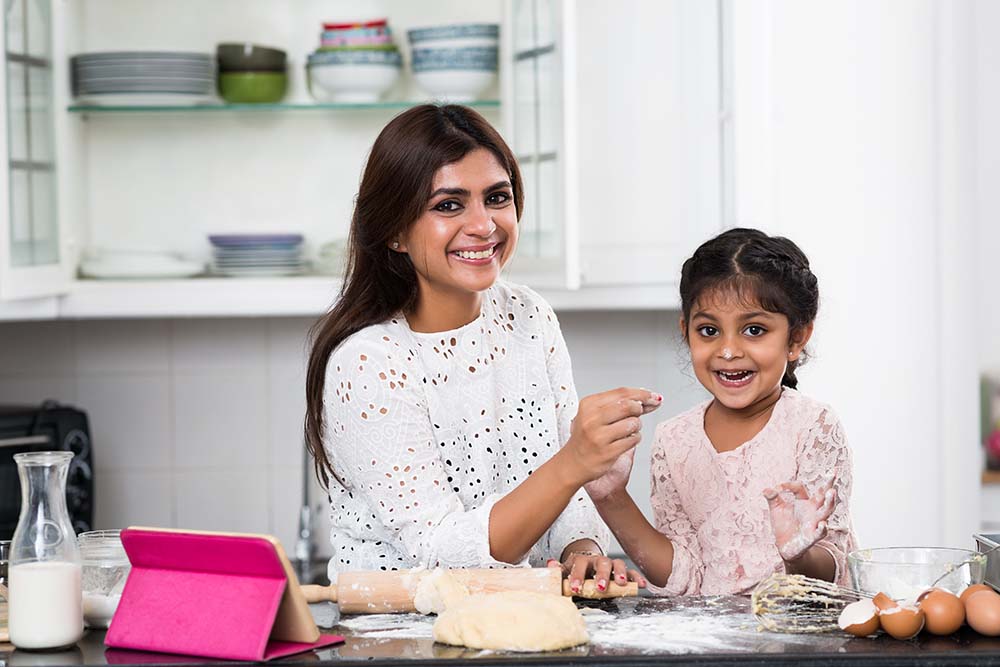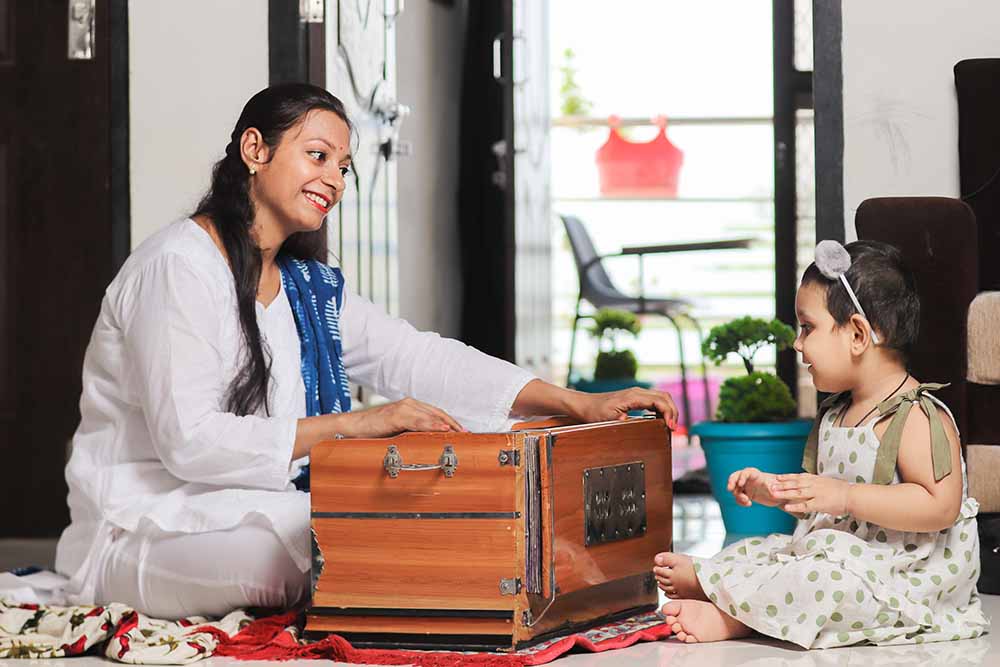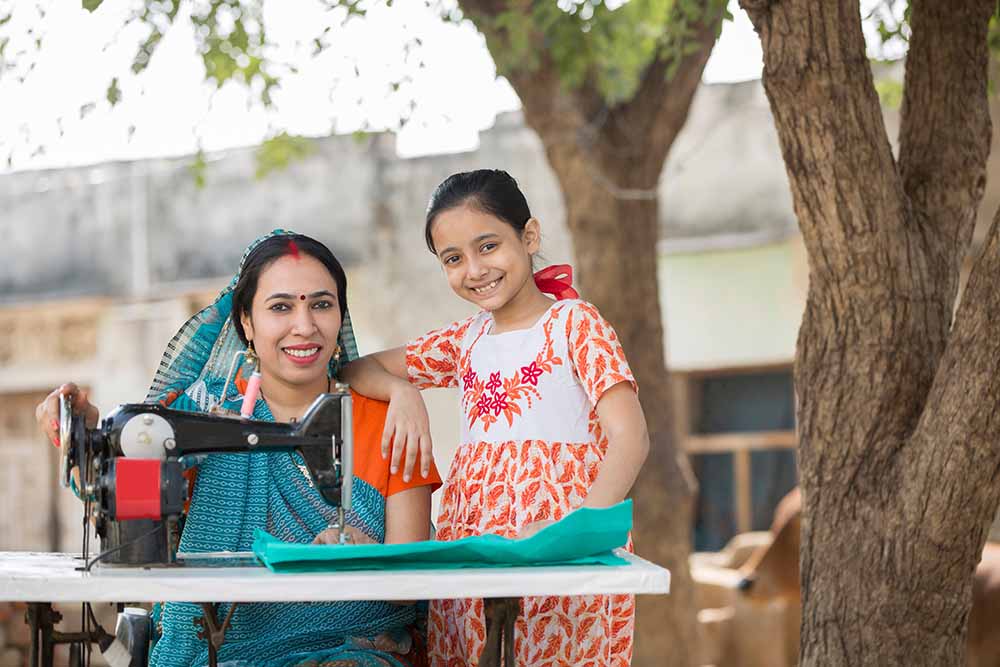The COVID-19 pandemic changed our lives forever—this is a truth of life that every person living today knows through lived experiences. But here, perhaps, is an aspect that changed that you may not have easily realised. When the pandemic hit, and India went into its first phase of lockdowns in March 2020, schools across the nation shut down. Kids of all ages and backgrounds were trying to get access to digital schooling—and a lucky few in urban India with good connectivity and enough digital devices at home were able to transition slowly but surely—while parents and family members were getting used to taking charge of the very same kids all day. Whether said parents were working or homemakers, parts of a nuclear family or a joint one, creating a balance was a tough call during those days of the pandemic.
As the lockdowns rolled on and global morale faltered due to increasing cases and deaths, however, we saw the family unit growing closer together. Those videos of kids and parents doing yoga together, cooking new recipes in the kitchen, or simply making dance reels as a family came in as a ray of hope. Soon, children were actively participating in their parents’ relief efforts for COVID patients. Most learned first-hand how to care for viral infection patients at home, how to prevent infections, and what the recovery process from a disease so severe can look like. All these things that not only kids, but also adults, learned during the two-plus years of the pandemic have convinced this author of one thing: The pandemic also brought about the renaissance of informal education in India and the value we place on it.

Understanding Informal Education
The first question that is bound to come to mind here is, how is informal education any different from formal education? Simply put, formal education is a curriculum-based, hierarchical, and structured education system where a child progresses through multiple stages to acquire increasing levels of skills. Formal education usually starts in nursery school, progresses to primary, secondary and higher-secondary school, and can then progress into universities, training schools, vocational colleges, etc for further skill refinement or professional training. Every kind of education that occurs outside this formal education system is known as informal education.
A 2018 study published in the Oxford Review of Education, titled Children’s conceptions of informal and everyday learning, explains the first fact about informal education that you must understand: Unlike formal education, quantifying informal education is next to impossible, and hasn’t been done (except theoretically) in any country of the world. An older research published in Studies in Continuing Education (2004) explains that “informal learning is largely invisible, because much of it is either taken for granted or not recognised as learning: thus respondents lack awareness of their own learning.”
This clearly suggests that informal education happens continuously, from the moment you are born to the moment you draw your last breath, even if we don’t realise or acknowledge it. In fact, it won’t be wrong to assume that this constant informal education is the reason why we use the popular adage “there is no age limit to learning”.

Informal Education, The Indian Way
In multi-cultural nations like India, informal education prospects are practically limitless. Every community, culture, religion, tribe, region and family unit has its own informal education system that has been passed down for generations. And this is where the role of Indian women is most prominent. It might seem like a gross generalisation, but think about it: Most of the informal education each of us has, has been passed down and taught by women of the family. This informal education imparted by Indian women is not only in the form of stories, rituals and oral history or heritage, but also in the form of life skills like cooking, mending, home economics, etc. Just like women’s labour at home is unaccounted for, so is the informal education they impart.
And yet, informal education continues to be passed down to girls more than boys because of the disproportionate burden women bear. Studies show that girls and women are still held responsible for domestic chores and care work, which suggests that there anyways exists an informal training system that most women inevitably go through. If patriarchies limits and the gendering of domestic work could be stopped, then even young boys could benefit from this informal education system that imparts training for critical life skills.
But Indian women aren’t the only repositories of informal education in the country. Rural and urban libraries, museums, languages, music, art, plays, and more recently, television programmes play a huge role in providing informal education too. In recent years, the digital revolution has enabled the creation of podcasts, videos and even educational reels as methods through which informal education is being shared ahead—and in fact to a wider, global audience this time. The pandemic truly showed us the way ahead by also turning products of informal education—whether they are recipes, art forms, handmade objects, podcasts or anything else—into prospective sources of livelihood via the internet.

The Benefits To Reap Are Many
Still not convinced that focusing on informal education can benefit you? Here’s something more for you: the most inspiring entrepreneurs and achievers in the world have drawn majorly from the informal education they received. Given the times we live in—and the fact that women and girls have more access to informal education—we can actually focus exclusively on generating more expertise and dominance over these fields. The benefits of being more conscious about the informal education you receive have therefore increased exponentially. Here are some of the key benefits of informal education that every woman can reap.
• You can study what you feel like. Informal education isn’t curriculum-based and rather depends on going with varieties that speak to you, personally. You could pick something that you already have a knack for, and easily convert it into a side gig—or a full-time one when needed.
• You can study when you want. Unlike school systems, informal education can be gained whenever you want, no matter what your age or background. This gives you the opportunity to gain expertise in an informal subject on your own time, whether it’s at night or during weekends.
• You can study how you want. There is no set method of gaining informal education, especially nowadays. You can learn from your grandmother and women in the family, as well as from women around the world as long as you have good internet service, access to a digital device, and a supportive community like Her Circle to depend on.
• You can study stress-free. No exams to give, no syllabus to rush through, and total flexibility—informal education provides you all the avenues to get an education the stress-free way. This also makes informal learning smoother.
• You will stay more motivated. Informal education is basically acquiring knowledge naturally. You are fuelled by curiosity, driven by passion and therefore more motivated to gain proficiency.